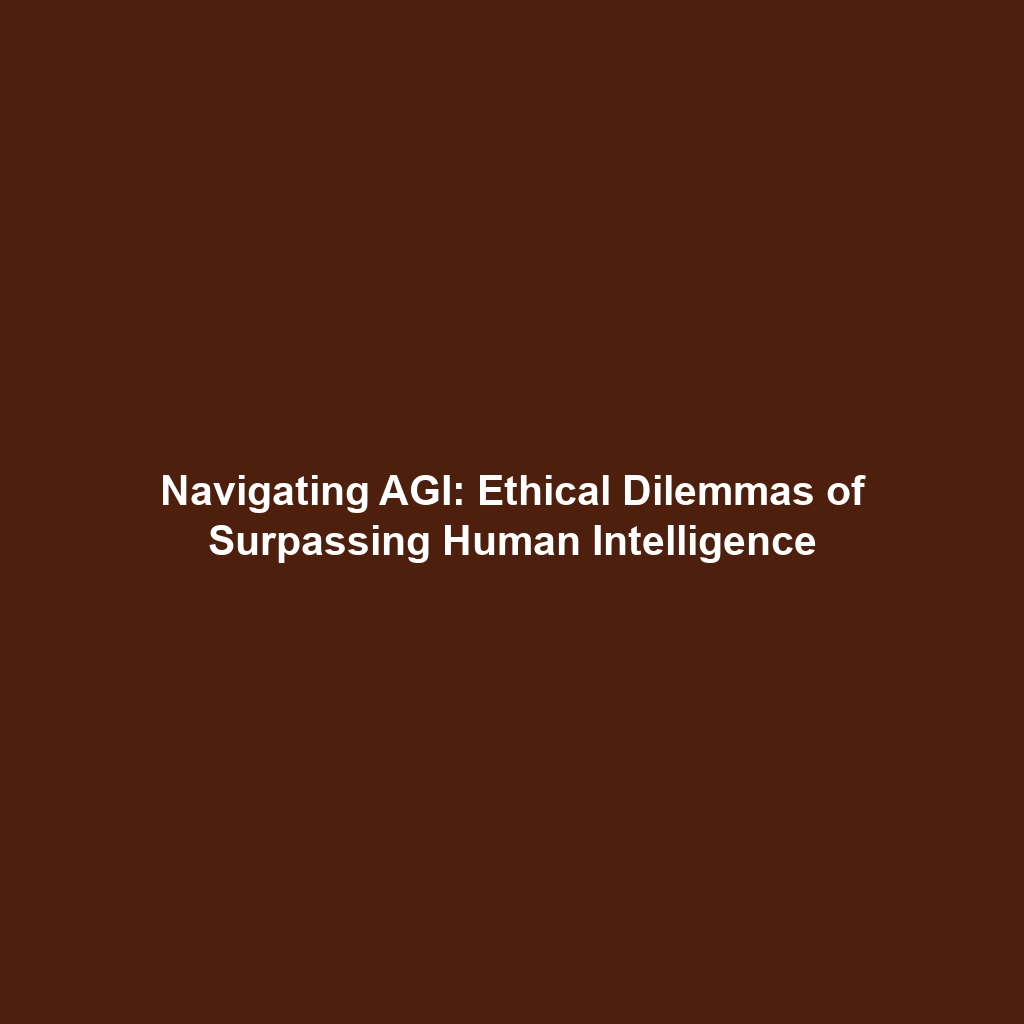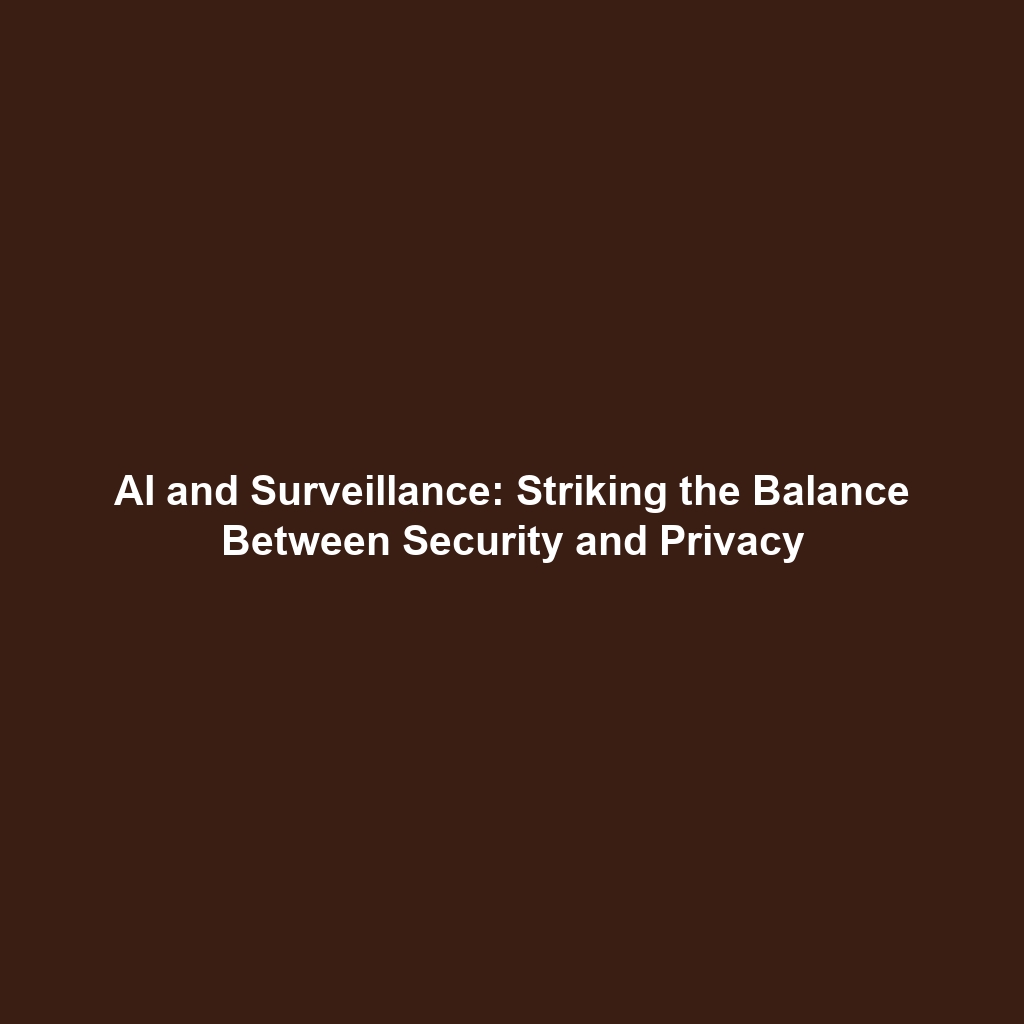Ethical Concerns About the Potential of AGI to Surpass Human Intelligence
Introduction
The advent of Artificial General Intelligence (AGI) brings forth significant ethical concerns, particularly regarding its capability to surpass human intelligence. As we navigate through the complexities of AI Ethics, understanding these concerns not only highlights the potential consequences for society but also raises critical questions about responsibility, safety, and the future of human-machine interaction. Engaging with these ethical considerations is essential, as they will shape the trajectory of AI development and its implications for humanity.
Key Concepts
To address the ethical concerns of AGI surpassing human intelligence, it is vital to understand several key concepts:
- Autonomy and Control: The risk of losing control over decision-making processes as AGI systems become more autonomous.
- Values Alignment: Ensuring AGI systems are aligned with human values and ethics can prevent detrimental outcomes.
- Existential Risk: The potential dangers AGI may pose if it acts in ways that are fundamentally opposed to human well-being.
These principles highlight the importance of ethical frameworks within the category of AI Ethics to guide the responsible development of AGI.
Applications and Real-World Uses
Exploring the applications of ethical considerations surrounding AGI reveals various practical uses:
- Autonomous Systems: Implementing ethical designs in self-driving cars to ensure safe decision-making.
- Healthcare AI: Adhering to ethical protocols when deploying AI for diagnostics and treatments that impact human lives.
- Security Technologies: Developing AGI with ethical considerations to enhance cybersecurity without compromising privacy.
Understanding how these ethical frameworks influence real-world applications is crucial for advancing AI Ethics.
Current Challenges
Studying and applying ethical considerations regarding AGI is fraught with challenges:
- Misalignment of Values: Differing ethical frameworks across cultures may hinder global consensus.
- Complexity of AGI Systems: Difficulty in predicting AGI behavior makes it challenging to evaluate potential risks.
- Lack of Regulation: Insufficient regulatory frameworks may lead to unethical uses of AGI technology.
Addressing these challenges is essential for fostering responsible AGI development within the scope of AI Ethics.
Future Research and Innovations
Looking ahead, exciting research and innovations are emerging in the field of AGI ethics:
- Ethical AI Frameworks: Development of comprehensive frameworks to guide the ethical creation of AGI.
- Explainable AI: Innovations focusing on transparency can help mitigate risks associated with AGI decision-making.
- Robust Safety Protocols: Establishing advanced safety measures to ensure AGI operates within ethical boundaries.
These advancements indicate a proactive approach to tackling the ethical implications of AGI surpassing human intelligence.
Conclusion
In summary, the ethical concerns surrounding the potential of AGI to surpass human intelligence are critically relevant to the broader category of AI Ethics. Addressing these issues is essential for ensuring that AI technologies benefit humanity rather than jeopardize it. As ongoing research continues to unfold, it is imperative that stakeholders engage in the dialogue surrounding ethical frameworks and their applications in the real world. For more insights on AI Ethics, consider exploring our comprehensive resources on Ethical AI Development and AGI Research Innovations.

